If you’re purchasing a new trailer hitch, you may be wondering what the difference is between a Class 3 and Class 4 hitch.
Both are designed for towing trailers, but they have different weight capacities.
Here’s a breakdown of how each class Hitch works and how much it can tow.
Class 3 vs Class 4 hitch
The main differences between a Class 3 and Class 4 trailer hitch are weight and tongue weight capacity.
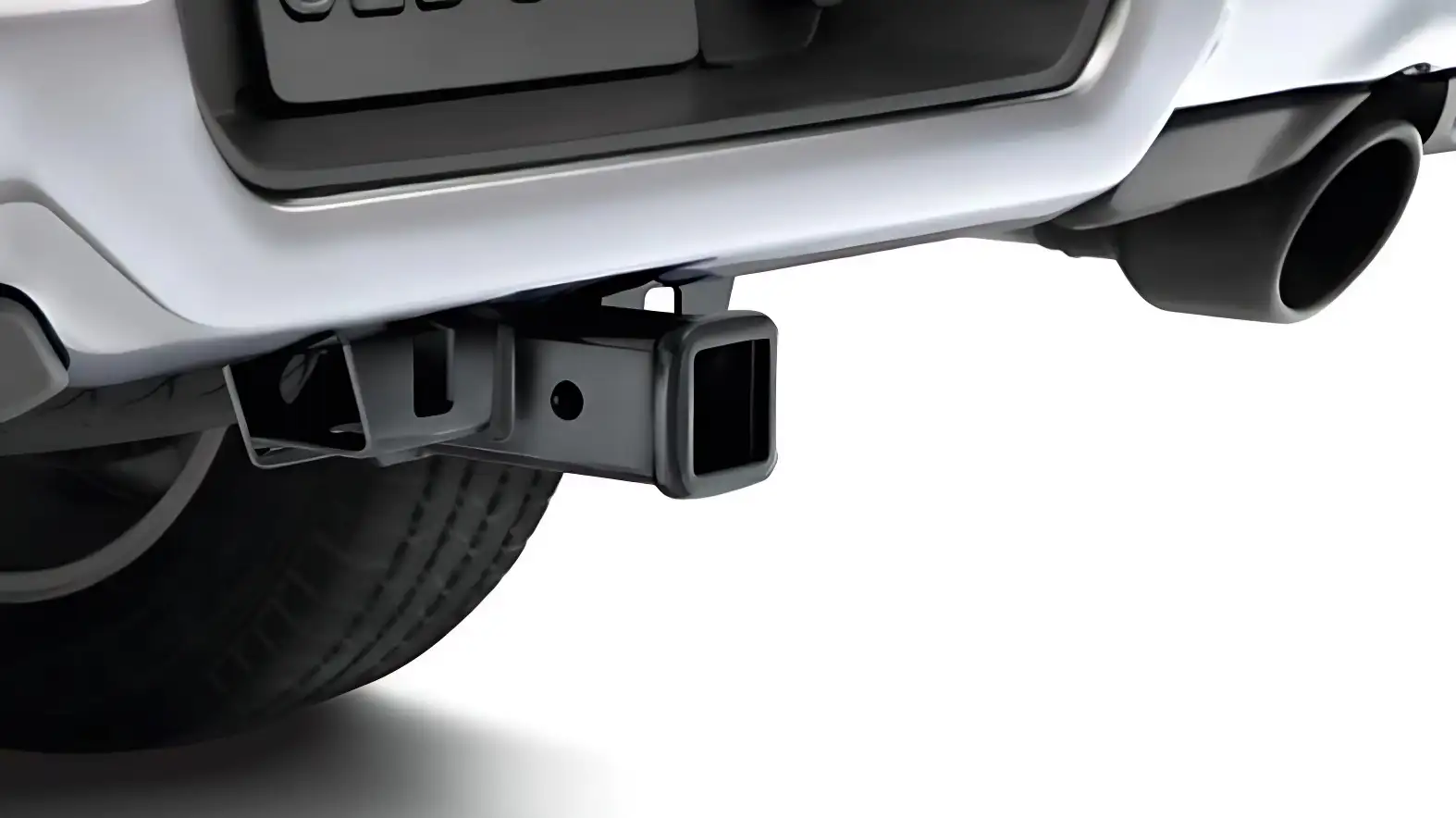
A Class 3 hitch has a maximum weight capacity of 8,000 pounds and a maximum tongue weight of 800 pounds.
A Class 4 hitch has a maximum weight capacity of 10,000 pounds and a maximum tongue weight of 1,000 pounds.
| Class III | Class IV |
|---|---|
| Weight capacity of up to 8,000 pounds (3,629 kg) | Weight capacity of up to 10,000 pounds (4,536 kg) |
| Tongue weight capacity of up to 800 pounds (363 kg) | Tongue weight capacity of up to 1,000 pounds (554 kg) |
Comparison: Class 3 vs Class 4 hitch
First thing first, class 4 hitches are not nearly as common as class 3.
Yet, they are larger and they have their tasks to pull. So, let’s figure out which tasks require which hitch.
Receiver size:
If you have been in towing for some time now, you probably know that the receiver size doesn’t really matter in most types of hitches.
Yet, for the sake of comparison, we tell you that, both these hitches have the same size receiver. It is 2 inches.
So, it won’t make any difference in terms of receiver size. The real distinguishing factors are to be discussed ahead.
The towing capacity:
Now, you get to decide what you are going to pull. Once you have bought any of the hitches, you cannot really pull anything than their maximum limit permits.
You can pull a maximum of 8, 000 pounds using a category 3 hitch, the overall capacity being 3,500 to 8,000 lbs.
On the other hand, you can effortlessly pull up to 10, 000 pounds using a category 4 hitch.
So, based on this towing capacity, what you can pull using the hitches also vary.
The specifications of each hitch determine how much weight it can bear and how it may be distributed.
So, before making a purchase, you should always examine the characteristics of each individual hitch.
What you can pull:
Now that you cannot go beyond the prescribed maximum pulling capacity, you cannot pull a heavy-duty and large full-sized vehicle with a category 3 hitch.
When you have to pull large recreational vehicles or boats, the weight goes beyond 8, 000 pounds.
The same goes for heavy-duty full-sized vehicles. They stand firmly over 8, 000 pounds. So, in this case, you will need a class 4 hitch to do the job effortlessly.
So, what about the class 3 hitches? Well, they can pretty much pull most of the full-sized pickup trucks and passenger vehicles with the weight in consideration.
The standard, ordinary-sized vans, crossovers, and SUVs can easily match with a category 3 hitch.
Let’s put this another way, whatever you want to pull, keep the towing capacity as the first consideration.
Remember never to overburden the hitch and risk property and life.
Tongue weight capacity:
Tongue weight capacity is another factor that reveals how much stronger the hitches get with each developed category.
Compared to the category 2 hitches, a category 3 hitch offers 350 and 800 lbs. more tongue weight capacity.
But, compared to a category 3 hitch, a category 4 hitch offer nearly 1000 lbs. more tongue weight capacity.
Weight distribution:
Never mix up the towing capacity of the hitch with the overall distribution efficiency.
No matter which type of hitch you use, adding a drawbar with a higher class will not boost the hitch’s capacity to pull a trailer.
Always be sure to make use of a weight-distributing hitch if you need to evenly disperse weight.
Which type of trailer hitch is best Between Class 3 And Class 4?
If you’re looking to tow a small to medium-sized trailer, a Class 3 hitch will likely suffice.
However, if you’re looking to tow a large or heavy trailer, you’ll need to go with a Class 4 hitch.
- Class 3 hitches are typically smaller and lighter duty than Class 4 hitches, making them better suited for lighter trailers such as popup campers or small utility trailers.
- Class 4 hitches, on the other hand, are larger and heavier duty, making them better suited for bigger trailers such as RVs or boat trailers.
How To Choose The Best Trailer Hitch Between A Class III And Class IV For Your Vehicle?
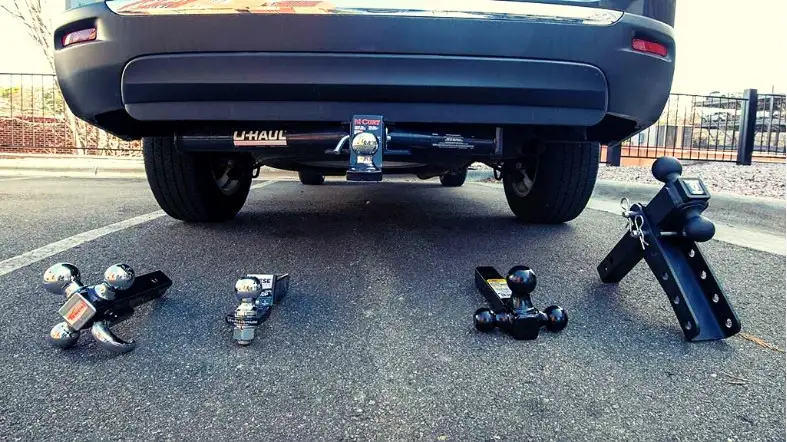
Choosing the right hitch will ensure that your trailer is towed safely and securely.
Class III and Class IV hitches are designed for different purposes, so choosing the right hitch for your needs is important.
A Class III hitch is typically used for smaller trailers, while a Class IV hitch is better suited for larger trailers.
Consider the few things given below to pick the best hitch for towing your trailer.
The weight of the trailer
When selecting a hitch, the weight of the trailer is one of the most crucial factors to consider.
A Class III hitch is typically used for trailers that weigh less than 2,000 pounds.
A Class IV hitch is typically required for trailers that weigh more than 2,000 pounds.
The Braking System
A Class IV hitch will be required if the trailer is equipped with its braking system.
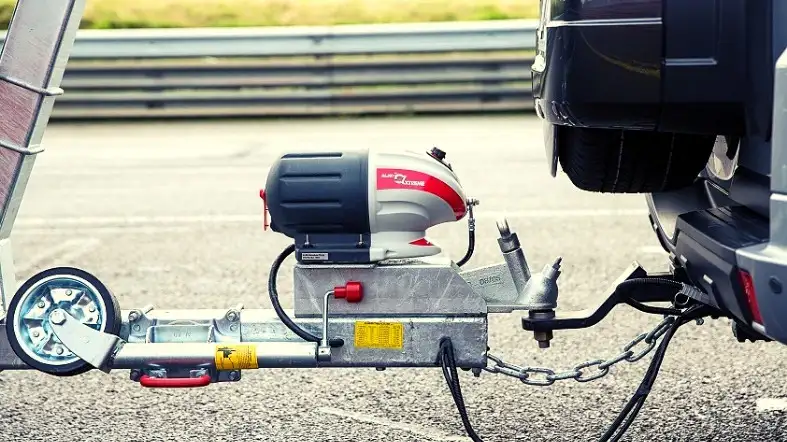
This is because a Class III hitch is not designed to handle the additional weight of a trailer with a braking system.
The size of the trailer
When selecting a hitch, the size of the trailer is also an important issue to consider.
A Class III hitch is typically used for smaller trailers, such as popup campers and small utility trailers.
A Class IV hitch is typically used for larger trailers, such as those equipped with braking systems.
Usage
The most popular form of trailer hitch is the Class III hitch. It is generally used for smaller trailers, such as pop-up campers and small utility trailers.
The Class III hitch is also commonly used for towing recreational vehicles (RVs) that are not equipped with braking systems.
Towed Behind The Vehicle
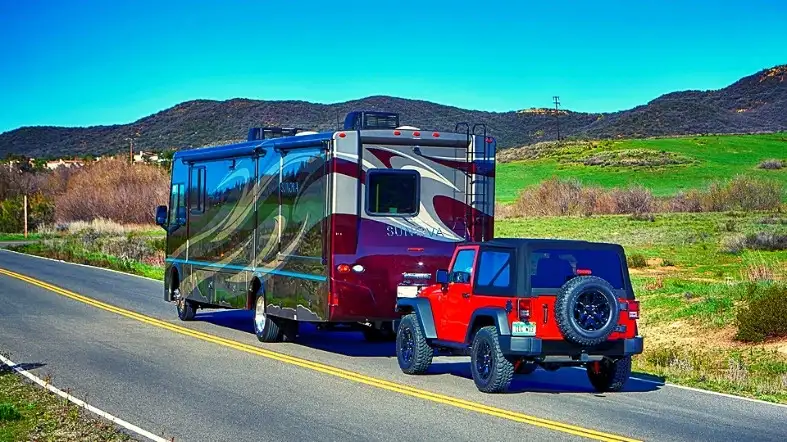
They tow smaller trailers such as popup campers and small boats. And they can also be used for towing larger trailers, but they are rare.
It’s a braking system.
The barking system of a class 3 hitch is designed for trailers that don’t have their braking system.
The class 4 hitch, on the other hand, is designed for trailers with their braking system.
What Are The Benefits Of Using A Class 3 Or 4 Trailer Hitch?
The merits of using a Class III or Class IV trailer hitch depend on what you need the hitch for.
A Class III hitch will be the better option if you want to tow a smaller trailer.
Conversely, a Class IV hitch is likely needed if you need to tow a more significant and heavier trailer.
Ultimately, choosing the right hitch for your needs is important to ensure that your trailer is towed safely and securely.
The Main Benefits Of Using A Class III Hitch Are:
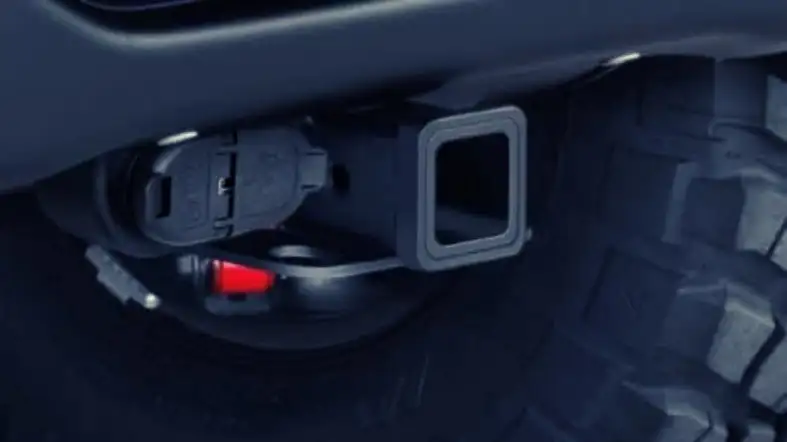
- Class III hitches are typically less expensive than Class IV hitches
- Class III hitches are easier to install than Class IV hitches
- Class III hitches weigh less than Class IV hitches
- Class III hitches can be used with a wider variety of vehicles than Class IV hitches
The primary benefits of using a Class IV hitch are:
- Class IV hitches can tow heavier trailers than Class III hitches
- Class IV hitches provide a smoother ride than Class III hitches
- Class IV hitches are less likely to sag under the weight of a heavy trailer
- Class IV hitches can be used with a wider variety of vehicles than Class III hitches
Ultimately, the decision of which hitch to use depends on your specific needs.
If you need to tow a heavy trailer, then a Class IV hitch is likely the better option.
However, a Class III hitch may be the way to go if you want to tow a lighter trailer.
Whichever hitch you choose, select one compatible with your vehicle for the safest and most secure towing experience possible.
How To Properly Install A Class 3 Or Class 4 Trailer Hitch?
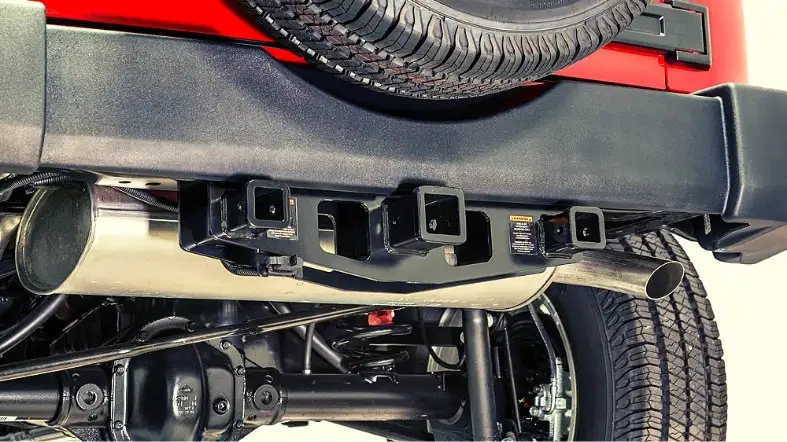
To ensure the proper installation and function of your trailer hitch, it is important to follow the instructions included with your hitch.
Class 3 and 4 trailer hitches are typically installed using the same methods.
Step 1
First, you will need to locate the attachment points on your vehicle.
This is typically done by looking at the main support beams of the frame.
Once you have found the attachment points, you must clean them off to ensure a proper connection.
Step 2
Next, you must attach the hitch to the attachment points using bolts or screws.
Be sure to follow the instructions included with your hitch for the proper type and size of fastener to use.
Step 3
After the hitch is attached, you will need to connect the safety chains from the trailer to the hitch.
This is done by attaching the hooks on the chains to the loops on the hitch.
Again, follow the instructions included with your hitch for the proper type and size of fastener to use.
Step 4
Once everything is connected, it is important to test all hitch connections to ensure they are secure.
This includes testing the attachment of the hitch to the vehicle, as well as the safety chains.
Testing the electrical connection if your trailer has lights is also a good idea.
These simple instructions will help you properly install your Class 3 or Class 4 trailer hitch.
What Are The Safety Precautions To Take While Utilizing A Trailer Hitch?
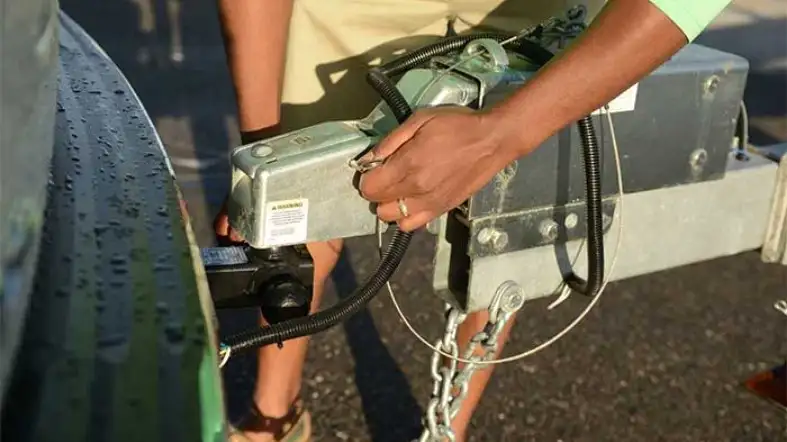
When utilizing a trailer hitch, keep the following safety precautions in mind:
Ensure the trailer hitch is correctly secured to the vehicle before attaching any trailers
You don’t want the hitch to come undone while you’re driving! Attach the trailer hitch as directed by the manufacturer.
Be aware of the maximum weight limit for your particular trailer hitch, and stay within it
Be aware of the extra weight you’re carrying when hauling a trailer.
A trailer with too much tongue weight may fishtail or jackknife. This can affect your braking, handling, and gas mileage.
Inspect the condition of your trailer hitch regularly, and replace it if necessary
Inspect the trailer hitch on a regular basis for signs of wear and tear.
Replace the hitch immediately if there are any signs of damage. Replace any damaged hitch components as directed by the manufacturer.
Use the appropriate trailer hitch for your car and trailer.
There are several sorts of trailer hitches, so use the one that is most suited to your car and trailer.
A Class 3 hitch, for example, is not intended for use with a fifth-wheel trailer.
Following these safety precautions can assist ensure a safe and pleasurable trailer hitch experience.
What Maintenance Tips For A Class 3 Or Class 4 Trailer Hitch?
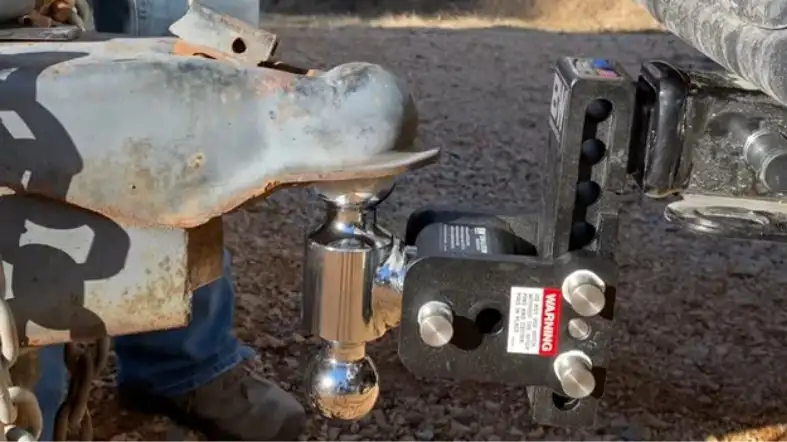
A Class 3 or Class 4 trailer hitch is a heavy-duty hitch designed to tow trailers weighing up to 10,000 pounds.
Because they are so heavy-duty, these hitches require special care and maintenance to keep them functioning correctly.
Here are some tips for maintaining your Class 3 or Class 4 trailer hitch:
- Inspect the hitch regularly for any signs of wear or damage. If you notice any damage, have the hitch repaired or replaced as soon as possible.
- Keep the hitch clean and free of debris. This will help prevent corrosion and other damage.
- Lubricate the hitch regularly with a quality lubricant. This will help keep it moving smoothly and prevent rusting.
- If you are not using the hitch, store it in a dry, protected area. This will help prevent damage from weather and other elements.
FAQs About Class III and a Class IV trailer hitch
What Is A Class 3 Hitch Good For?
Class three is good for anything weighing between 3, 500 to 8, 000 pounds, be it vans, bikes, SUVs, campers, boats, full-sized trucks, etc.
How Do I Know If I Have A Class 3 Or 4 Hitch?
Classifications of hitches are based on the size of the receiver opening and the maximum weight those openings can support.
Find it by reading the hitch’s label or by measuring the opening size.
What Happens If You Tow At Max Capacity?
Towing more than your car can handle places extra stress on the engine and gearbox.
It may deform the chassis, harm tires, and may speed up brake wear.
How Can I Maximize The Use Of My Trailer Hitch?
You can maximize the use of your trailer hitch by using the proper size and type of hitch for your vehicle and trailer and by following the manufacturer’s instructions.
What Are Some Accessories I Can Use With My Trailer Hitch?
Some accessories you can use with your trailer hitch include covers, locks, and lights.
Covers can protect your hitch from the elements, while locks can prevent theft. Lights can make it easier to see your trailer at night.
The bottom lines
Now you know the difference between a Class 3 and Class 4 trailer hitch. Class 4 hitches typically have a larger and sturdier design.
Overall, it is important to consider your specific towing needs before selecting a trailer hitch.
It is also important to note that trailer weight ratings are determined by the manufacturer and may vary.
